Past Events
Past Events
Va‘aomanū Pasifika Seminar Series 2020 - Kaitlin Tara Rose Abbott
Date: 1 October 2020
Time: 3.10 pm
The PASI 428 Internship
Location: VZ606
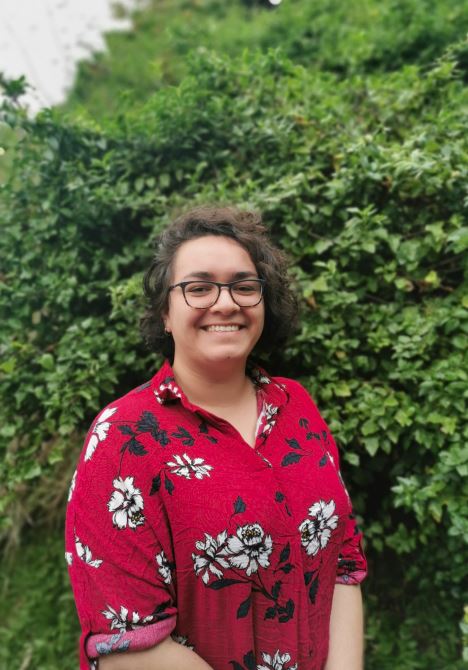
Bio Kaitlin Tara Rose Abbott completed a Bachelor of Arts, majoring in Pacific Studies, Cultural Anthropology, and English Literature in June 2019. After not being able to start her Honours straight away, Kaitlin worked for the next sixth months in event coordination and function hosting before coming back to take on her Honours in Pacific Studies. Kaitlin is a proud Cook Islands Maori and English vahine, born and raised in Taira whiti. For her PASI 428 internship, Kaitlin’s options were limited by the restrictions of the COVID-19 pandemic. Fortunately, she was given the opportunity to join the organising committee for the fifth Social Movements, Resistance, and Social Change conference to be held in Wellington (and online) in November of this year. Kaitlin says of the experience, “I was given many heartfelt and heartwarming opportunities to embrace my role as a member of the committee. At no point did I feel like I was regarded as anything less than a colleague by the members of the committee. They were always willing to let me engage with the content of the conference planning despite, in some ways, being less experienced than my counterparts.” Kaitlin’s experience working in event coordination during her break from studies set her up well to incorporate her Pacific Studies learning and to engage deeply with her PASI 428 internship.
Sex and desire between men in Byzantium: civil law, dissidence, and (the lack of) enforcement.
Date: 21 May 2020
Time: 3.10 pm
CANCELLED The School of Languages and Cultures invites you to a seminar from the Classics Research Seminar Series presented by Dr Mark Masterson, Programme Director of Classics, Senior Lecturer of Classics.
Venue: OK526 (Classics Museum)
In the mid-eighth century in the Ekloge, the Isaurian law code, we read a law against sex between males: "The aselgeis, both the one doing it and the one receiving it, let them pay the penalty by the sword. But if the one receiving is discovered to be less than twelve years old, he should be excused,as his age shows that he did not understand this thing he had undergone"(17.38). Understood here is that the aselgeis are males who have sex with one another. While there is some consideration given to the very young, and while it is not as severe in its rhetoric as enactments in the earlier Justinianic and Theodosian codifications, it is all the same a cruel law that mandates execution (in addition, of course, to promising persecution and the crushing of dissidence). It is therefore interesting that we have no record of this law ever being used. In this papers, I discuss what we may wish to make of this situation.
ALL WELCOME
The representation of male rape in Roman declamation and law.
Date: 7 May 2020
Time: 3.10 pm
CANCELLED
The School of Languages and Cultures invites you to a seminar from the Classics Research Seminar Series presented by Jakob McCaffrey, MA candidate in Classics.
Venue: OK526 (Classics Museum)
This seminar will focus on the way in which the Late Roman Republic and Early Empire dealt with the notion of a man being sexual assaulted. Particular attention shall be placed on both Pseudo-Quintilian’s Declamations 3 and Seneca the Elder’s Controversiae 5.6.
ALL WELCOME
Giants, Gladiators and Boogeymonsters: Reading Norman Women in the Alexiad - Canceled
Date: 9 April 2020
Time: 3.10 pm
Canceled
The School of Languages and Cultures invites you to a seminar from the Classics Research Seminar Series presented by Claudia Jardin MA candidate in Classics.
Venue: OK526 (Classics Museum)
The women of Emperor Alexios I Komnenos' court in Anna Komnene's Alexiad have received considerable attention in modern scholarship for the remarkable power they held in twelfth-century Byzantium. Less appreciated by historians and academics than their adversaries, Norman women also feature prominently at a few key points in Komnene's narrative and seem to be part of a larger strategy through which the author recognized and perhaps even celebrated the agency and influence of women in the reign of Alexios. This paper introduces Gaita, Emma of Hauteville and the unfortunate Helena alongside the classical allusions which form a key part of their descriptions in the the text in order to offer some potential interpretations of the significance of Norman women in the Alexiad.
ALL WELCOME
Célestine Vaite’s Multilingual Writing - Canceled
Date: 26 March 2020
Time: 3.10 pm
CANCELLED The School of Languages and Cultures invites you to a seminar from the Va‘aomanū Pasifika Seminar Series presented by Manuia Heinrich Sue.
Venue: VZ606
Abstract
Between 2000 and 2006, Tahitian author Celestine Vaite, who now lives in Australia, published a series of novels in English, Breadfruit, Frangipani and Tiare in Bloom, all of which earned international acclaim. Set in 1970s colonial Tahiti, these novels ally several languages, including English, French, Tahitian and the Tahitian-French vernacular, giving the text a rich cultural flavour. With colonial, global, indigenous and regional languages being woven together in these unique literary productions, Vaite’s multilingualism becomes an active medium of diasporic and indigenous identity assertion. While Tahiti is still under colonial rule today, I will explore how Vaite’s multilingualism linguistically brings down invisible barriers forged by waves of colonization across Oceania, thus answering the call of Pacific theorist Epeli Hau’ofa in his foundational work, A New Oceania: Rediscovering Our Sea of Islands, while also addressing the lack of scholarship on Ma’ohi writers. To contextualize my research in a Ma’ohi epistemology and reality, I will explore and explain a methodology modelled after the tifaifai, the French Polynesian quilt, and analyze Vaite’s use of languages with the concepts of diaspora, indigeneity and postcolonialism.
Bio
Like Celestine Vaite, I have a diasporic background. I was raised in New Caledonia, surrounded by various cultures and languages: French at school, Tahitian at home, the regional French of New Caledonia in informal venues. I learned Spanish and English at school, and after obtaining a bachelor’s degree and a Master’s in English, I became a teacher for the French government in my country. While working, I did another Master’s in Literatures and Cultures of the Pacific, and eventually gave into the temptation to study how Vaite’s multilingual writing resonates with me both linguistically and culturally.
ALL WELCOME
Fly the flag (at your own risk): netizens, nationalism and celebrities between South Korea, Japan and beyond
Date: 13 March 2020
Time: 3.10 pm
The School of Languages and Cultures invites you to our next Research Seminar in the 2020 series
with Associate Professor Stephen Epstein (Asian Studies)
Venue: vZ 606
Abstract
Recent years have witnessed numerous instances of celebrities caught up in nationalist arguments within East Asia’s highly sensitive media environment. In this talk I consider cases in which celebrities appear with images of, or somehow evoking, flags and then become objects of discussion and/or abuse. I focus primarily on incidents of netizens hounding South Korean celebrities in relation to their (seeming) use of Japan’s Rising Sun Flag and thereby showing what is treated as insufficient national consciousness. By doing so, I seek to underline how nationalism intersects with the increasing mediatisation, personalisation and commodification of celebrity. In particular, I explore why celebrities are experiencing such panoptic online policing and being invested with ever greater value as vessels of national sentiment, and ask what meaning this growing tendency holds for relations between South Korea and Japan.
Bio
Associate Professor Stephen Epstein directs the Asian Languages and Cultures programme at Victoria University of Wellington, and his research and publications focus on contemporary Korean society, literature and popular culture. He has also co-produced two documentaries on the Korean underground music scene with Timothy Tangherlini (Our Nation: a Korean Punk Rock Community, 2001; Us and Them: Korean Indie Rock in a K-pop World, 2014) and translated several works of Korean and Indonesian fiction. Recent books include The Korean Wave: A Sourcebook, co-edited with Yun Mi Hwang (Academy of Korean Studies Press, 2016) and his translation of Intan Paramaditha’s novel The Wandering: A Red Shoes Adventure (Harvill Secker, 2020), for which he won a PEN/Heim Translation Fund Grant. A volume he co-edited with Rumi Sakamoto of the University of Auckland, entitled Popular Culture and the Transformation of Japan-Korea Relations, will appear with Routledge later in 2020.
ALL WELCOME
Organsied by Associate Professor Marco Sonzogni
Gaia's cult at Delphi: A ‘Previous Owner’?
Date: 12 March 2020
Time: 3.10 pm
The School of Languages and Cultures invites you to a seminar from the Classics Research Seminar Series with Eilish Draper (MA Candidate in Classics)
Venue: OK526 (Classics Museum)
Early 20th century scholars tend to depict the Greek goddess Gaia as a previous owner of the Delphic oracle, whose cult was superseded by the intruder Apollo. They argue that Gaia was a Mycenaean goddess, and they often use Athenian literature from the 5th century BCE onwards to bolster their arguments. This talk will examine the extent of Gaia's cult worship at Delphi from the Bronze Age to the 2nd century CE, and will compare it to her characterisation in myth over the same period.
ALL WELCOME
Wellington Classical Association (WCA) - 'Classical Illusions' Book Launch
Date: 8 October 2019
Time: 7.30 pm
Venue: Hugh McKenzie Lecture Theatre 104 (HMLT104)
Classical Illusions
Presented by EProf John Davidson
This will be the book launch for John Davidson’s latest collection of poetry Classical Illusions, published by Steele Roberts Aotearoa. The collection of poems is devoted entirely to the ancient Mediterranean world from a variety of modern perspectives, some serious, some humorous (or at least fanciful!).
John will give an informal talk about a selection of the poems, explaining how he came to write them and pointing to particular points of interest.
SLC Research Seminar Series - Dr Francesca Calamita
Date: 11 July 2019
Time: 12.10 pm
Venue: vZ606, von Zedlitz Building, Kelburn Parade
(In)digesting the Self: Migration, Patriarchy, Post-colonialism and Food in Igiaba Scego’s “Salsicce” (2003)
Presented by Dr Francesca Calamita, (Assistant Professor at the University of Virginia)
Abstract
Over the past few decades, Italy has experienced a growing influx of migrants. As well as re-shaping Italian identity, this influx has also determined the development of a new literary “genre”: migrant women’s writing. The marginal position occupied by Italian migrant women—because of their origins, race and gender—is discussed in several autobiographical and fictional writings which also address current debates on immigration.
In her works, Igiaba Scego (Rome, 1974), a second-generation Muslim, discusses her Somalian roots and Italian citizenship, and the navigation of two different identities. In “Salsicce” [Sausages], a short story written in 2003, the young Muslim woman protagonist of the story negotiates her identity through food by eating pork, traditionally considered unlawful in accordance with the Qur’an. This act symbolizes her desperate attempt to prove that she is a conventional Italian girl, despite her race and her religion. This short story takes place in Silvio Berlusconi’s Italy and at the time of the Bossi-Fini law (2002), which required fingerprints for all non-European Union immigrants. Holding an Italian passport is not enough to make the protagonist feel safe in her country: since her physical appearance does not conform to mainstream Italian girlhood, her future will always be that of an outsider.
In “Salsicce”, not only does Scego focus on the double identity of young Italians of African origins from a gendered perspective, but she also denounces Italy’s colonial past, whose sexist and racist attitudes continue today. Framing my argument in Postcolonial Feminist Studies, I seek to decode the multifaceted meaning of food in Scego’s short story and, in turn, how food shapes the young protagonist’s complex identity. My presentation will raise questions of gender, race, religion and the politics of the body in light of current immigration debates in Europe.
Biography
Francesca Calamita holds a PhD in Italian from Victoria University of Wellington. She is Assistant Professor at the University of Virginia where she teaches Italian Studies and Women, Gender and Sexuality. She is the author of a monograph on anorexia and bulimia in modern and contemporary Italian women’s writing (Linguaggi dell’esperienza femminile, Il Poligrafo, 2015) and co-editor (with Petra Bagley and Kathryn Robson) of the volume Starvation, Food Obsession, and Identity (“Studies in Contemporary Women’s Writing”, Peter Lang, 2017). Francesca is currently co-editing (with Claudia Bernardi and Daniele De Feo) a volume on women’s relationship with food in Italian literature, culture and society (Bloomsbury Academic).
NZCLT Gathering - Sympathy for the Translator, Sympathy for the Devil
Date: 27 June 2019
Time: 4.00 pm
Venue: vZ606, von Zedlitz Building, Kelburn Parade
Sympathy for the Translator, Sympathy for the Devil
Presented by Associate Professor Stephen Epstein
Mark Polizzotti's polemic 2018 essay collection Sympathy for the Traitor, as its press blurb states, "invites us to sympathize with the translator not as a 'traitor' but as the author's creative partner." At this trimester-end NZCLT gathering, Stephen Epstein will give an informal and personal overview of his experience in translating Intan Paramaditha's Gentayangan: Pilih Sendiri Petualangan Sepatu Merahmu (The Wandering: Choose Your Own Red Shoes Adventure), the winner of Tempo Magazine's award for the best Indonesian prose fiction work of 2017, and his relationship of translation and creative collaboration with the author.
Other topics that Stephen will touch upon are comparative observations on translating two different Asian languages into English, the recent controversies that have emerged as Indonesia literature increasingly appears on the world's stage as the 2015 guest of honour at the Frankfurt Book Fair and market focus country at the London Book Fair earlier this year, and the extensive use of quotes from English-language song lyrics in his translation of Gentayangan. He will also address a somewhat unusual question: how do you translate if you begin to suspect that you yourself are feeding into the inspiration for one of the characters whose dialogue you are translating?
For an overview of this remarkable novel before the session, Stephen urges a look at Tiffany Tsao's review: https://www.thejakartapost.com/life/2017/11/13/intan-paramadithas-gentayangan-crosses-many-borders.html. The work is being supported by a PEN Translate grant and the PEN/Heim Translation Fund and and will appear with Harvill Secker in the UK and Arcade Books in the US in 2020.
ALL WELCOME NZCLT Director – Dr Luo Hui (hui.luo@vuw.ac.nz)
AKAMAI XIX
Date: 6 June 2019
Time: 6.00 pm
Venue: Hunter Lounge, Third Floor, Student Union Building
Please come and join us for Akamai XIX where our PASI 101 students will showcase their learning in creative, performative, artistic, and innovative ways. It is going to be an amazing evening of poetry, dance, art, song, film, fashion, and so much more.
Come along to support our students, to share in their learning, to be inspired by their work, and to help us celebrate our Pacific Heritage - entry is FREE!!!!
To add an AKAMAI XIX reminder to your Facebook events click here.
Contact:
If you have any queries, please contact Emalani Case, Pacific Studies lecturer and Course Coordinator for PASI101.
Samoan Language Week 2019
Date: 26 May – 1 June 2019
Time: 12.00 am
Venue: Wansolwara, Kelburn Library, Level 2, Kelburn Parade
Talofa Lava!!!
We hope that you can join us in celebrating Samoan Language Week (SLW) for 2019. The theme for this year is:
‘Lalaga le si’osi’omaga mo se lumana’i manuia’ - ‘Weave an environment for a better future’
To celebrate the start of Samoan Language Week, there will be a launch at the Wansolwara space, Level 2 of the Kelburn Library.
All welcome to see students in our Samoan and Pacific Studies courses embrace the culture through various activities from debates to performances!!
Click here for the Monday Launch Programme.
For more information on events happening at Victoria for Samoan Language Week - click here.
For nationwide celebrations throughout Samoan Language Week - check out the Ministry of Pacific Peoples website.
SLC / Va‘aomanū Pasifika Research Seminar Series 2019 - Le‘ausālilō Lupematasila Fata ‘Au‘afa Sadat Muai‘ava
Date: 15 May 2019
Time: 3.00 pm
Venue: Rm 102, 6 Kelburn Parade (6KP)
'O le li‘ili‘i mai ‘o lisega ‘o le talutalufou: Lexical changes in the gagana Sāmoa 1906-2014
Presented by Le‘ausālilō Lupematasila Fata ‘Au‘afa Sadat Muai‘ava
Abstract
As researchers, educators, learners and speakers of the gagana Sāmoa(Samoan language), there is an overwhelming observation that it has undergone considerable change (Pratt 1862, Cain 1986, Mosel and Hovdhaugen 1992, Allardice 2000, Lameta 2005, Tamasese 2005, Ma'ia'i 2010, Macpherson 2010, Kruse-Va'ai 2011, Ma'ilo 2016). But to what extent, and what might these changes look like? In this seminar, I will discuss how foreign words have been lexically integrated into the gagana Sāmoa by using Macalister’s (2007) Lexical Outcomes of Language Contact model (LOLC). Results show that foreign words have been integrated under five LOLC categories of loanwords, semantic loans, loan translations, hybrids and neologisms. This seminar is based on my doctoral research about Samoan language text-based change from 1906-2014.
Biography
Le‘ausālilō is a lecturer in the Samoan Studies programme and a PhD candidate in Pacific Studies at Va‘aomanū Pasifika, Victoria University of Wellington.
Free public screening of 'Rome, Open City'
Date: 22 September 2015
Time: 7.00 pm
Venue: City Gallery Wellington
Victoria University of Wellington's Film, History and Italian Programmes, with the support of City Gallery Wellington and the Embassy of Italy, invite you to a screening of Roberto Rossellini's neorealist masterpiece Rome, Open City, on the occasion of the seventieth anniversary of its first release. This event is part of Victoria's '1945-2015: Legacies of Loss and Liberation Seminar Series'.
Otto Preminger said that the history of cinema is divided into two eras: one before and one after Rome, Open City. At once raw and polished, classical and revolutionary, conservative and progressive, universal and firmly rooted in its time and place, Rome, Open City is both the paradigm of Italian Neorealism and perhaps the least 'neorealist' of its works. Shot while the war still raged, and set in 1944 during the Nazi occupation of Rome, the film chronicles the life of Pina (Anna Magnani) and the ordinary Romans of her working class tenement in their struggle for survival and resistance. Constantly beset by tragedy, they are unmistakably suffused with the hopes and urgency of the Liberation. Rossellini's work remains today a unique depiction of an occupied city: a film charged with an uncompromising yet deep-seated empathy that has ensured its enduring global legacy.
To reflect on the film's legacy seventy years after the end of World War Two, the screening will be followed by a panel discussion and Q&A, featuring New Zealand filmmaker Stuart McKenzie, and Victoria University's Claudia Bernardi (Italian), Thierry Jutel and Alfio Leotta (Film), and Giacomo Lichtner (History).
The event is free and open to the public, but spaces are limited.
Contact: giacomo.lichtner@vuw.ac.nz, or phone 04 463 6756.
Public Lectures
Emotional Rhetoric and Sexualized Livelihood: Marriage and Transatlantic Migration in Postwar Germany
Date: 9 May 2019
Time: 7.30 pm
Venue: Murphy Building, Lecture Theatre 101 (MYLT101)
Professor Alexander Freund (University of Winnipeg)
After the devastations of the Second World War, millions of Europeans wished to emigrate overseas to start a new life. Among them were thousands of German women, whose emigration plans and life strategies were restricted by gendered migration policies and ongoing sexualizing discourses about their bodies and minds. These discourses were interlaced with emotional rhetoric—an emotional rhetoric that state and church agencies mobilized to control women, and an emotional rhetoric that women employed to fight for autonomy. In particular, state and church authorities sought to link public fears about national sovereignty and demands for political security to private fears about female autonomy, morality, and sexuality. Women responded in new and creative ways to the continued sexualization of their agency. The presentation is based on documents of German government agencies and church organizations in the British and U.S. zones of occupation that dealt with so-called scam agencies (Schwindelfirmen). These suspected Schwindelfirmen, alleged state and church officials, used advertising to con German women (and men) who wished to emigrate in the immediate postwar period. It also draws on oral history interviews with postwar German immigrants in the United States and Canada.
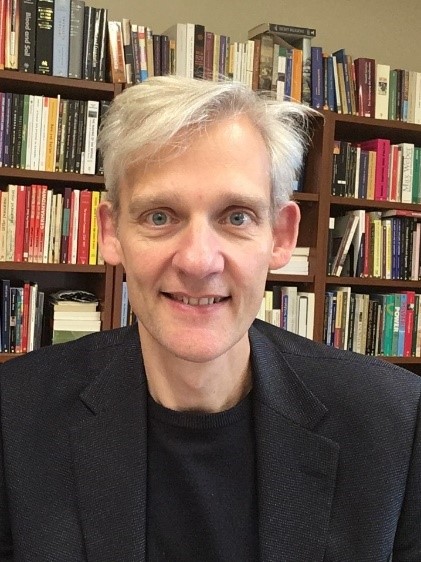 Alexander Freund is professor of history at the University of Winnipeg, where he also holds the Chair in German-Canadian Studies and is founding director of the Oral History Centre. He has published widely in migration history and oral history, including Aufbrüche nach dem Zusammenbruch: Die deutsche Nordamerikaauswanderung nach dem Zweiten Weltkrieg (2004), Oral History and Ethnic History (2014), the edited collections Beyond the Nation? Immigrants’ Local Lives in Transnational Cultures (2012) and History, Memory, and Generations: German-Canadian Experiences in the Twentieth Century (forthcoming), several co-edited collections on oral history and on transnational history, and over thirty journal articles and book chapters.
Alexander Freund is professor of history at the University of Winnipeg, where he also holds the Chair in German-Canadian Studies and is founding director of the Oral History Centre. He has published widely in migration history and oral history, including Aufbrüche nach dem Zusammenbruch: Die deutsche Nordamerikaauswanderung nach dem Zweiten Weltkrieg (2004), Oral History and Ethnic History (2014), the edited collections Beyond the Nation? Immigrants’ Local Lives in Transnational Cultures (2012) and History, Memory, and Generations: German-Canadian Experiences in the Twentieth Century (forthcoming), several co-edited collections on oral history and on transnational history, and over thirty journal articles and book chapters.
Refreshments provided.
Date: Thursday, 9 May 2019
Time: 7.30 pm
Venue: MY 101, Murphy Building, Kelburn Parade, Victoria University of Wellington
Organised by the Goethe Society in cooperation with the Goethe-Institut New Zealand
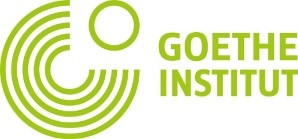
Seminars
SLC Research Seminar Series - Reader Marco Sonzogni
Date: 17 October 2019
Time: 4.10 pm
Venue: vZ606, von Zedlitz Building, Kelburn Parade
“Given notes as stepping stones: Heaney the writer-translator”
Presented by Reader Marco Sonzogni (Translation Studies)
Abstract
In this research seminar Marco will distant-read and close-read a number of Heaney poems in order to weave a translational thread that illustrates Heaney's approach to both writing and translating as responses to 'given notes'.
Bio
Marco Sonzogni has devoted nearly thirty years to reading, translating and annotating the poetry of Seamus Heaney. He is currently editing for Faber and Faber the definitive edition of Heaney's literaey translations from 15 languages and canons. He is the recipient of the prestigious Premio Lerici Pea for translation (2019).
ALL WELCOME | Seminar Convenor Reader Marco Sonzogni (marco.sonzongi@vuw.ac.nz)
SLC / Va‘aomanū Pasifika Research Seminar Series 2019 - Jordan Fox & Tuli Penieli Poasa
Date: 16 October 2019
Time: 3.00 pm
Venue: Rm 102, 6 Kelburn Parade (6KP), Kelburn
The PASI 428 Internship
Presented by Jordan Fox and Tuli Penieli Poasa
Abstract
The PASI 428 Internship is part of the BA Honours programme in Pacific Studies and involves a supervised work placement in a public sector agency, private sector establishment, or non-governmental organisation with a focus on Pacific issues. Students are required to work between 150–200 hours, write a 3,000-word reflective essay, and provide a public seminar presentation about their work experience. Over the past decade, the PASI 428 Internship has played a valuable role in producing career-ready graduates from the Pacific Studies BA Honours programme.
Biographies
Jordan Fox, Volunteer Service Abroad
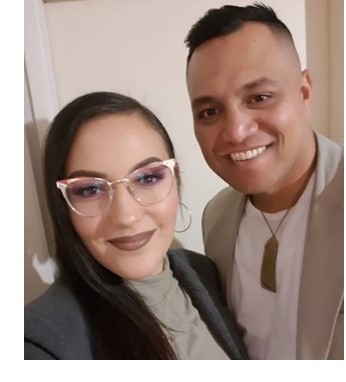
Jordan Fox hails from Wairarapa and lived most of his life in the town of Masterton. After several years living abroad, Jordan returned to New Zealand to pursue education, completing his Bachelor of Arts in Pacific and Maori Studies in 2018. Jordan interned with Volunteer Service Abroad (VSA), a non-governmental organisation tasked with providing quality skilled volunteers to work in the Pacific region with a number of communities, businesses and government departments. Jordan’s desire to intern with VSA came from the idea of putting his Pacific Studies knowledge into practice. Essentially the internship provided a space where theory and practice could exist and be observed, whether they complemented or challenged one another, or a combination of both. Overall, Jordan’s understanding of Pacific identity was richly enhanced, for which he owes VSA a great deal of gratitude.
Tuli Penieli Poasa, New Zealand Police
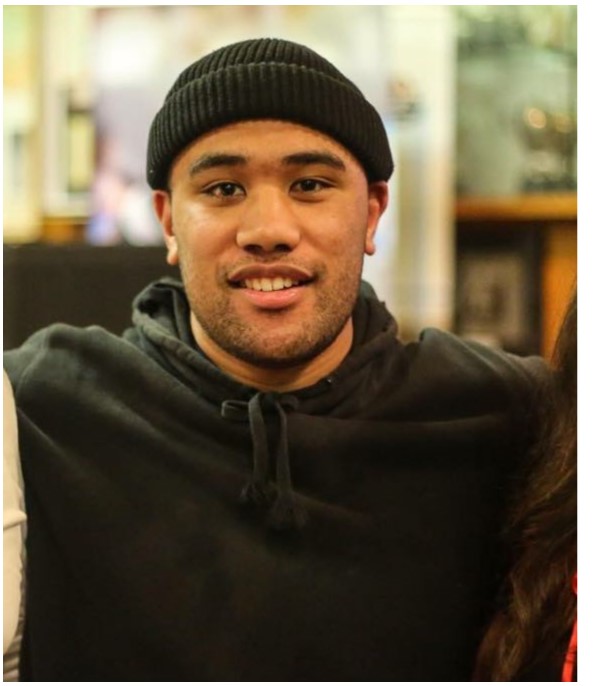
Tuli Penieli Poasa is a BA Honours Student in Pacific Studies. A proud Samoan from the tough hills of Strathmore on the east-side of Wellington, he double majored in Pacific Studies and Criminology and minored in Psychology. He completed his PASI428 internship with the New Zealand Police, specifically with its Wellington-based Maori, Pacific, Ethnic Services (MPES) team as well as gaining a bit of experience with their youth engagement activities. Interning with the NZ Police initially presented Penieli with "an interesting paradox, as I am someone who has had quite negative perceptions toward the police." This internship was therefore not only an opportunity for practical work experience but also an opportunity to "gain an alternative view of the Police, by learning and understanding key work they do within our own communities." Penieli will speak about his tasks, responsibilities, and some of the challenges and highlights of his internship experience.
SLC / Va‘aomanū Pasifika Research Seminar Series 2019 - Rebecca Chyrstal & Miuti Peteli Poasa
Date: 2 October 2019
Time: 3.00 pm
Venue: Rm 102, 6 Kelburn Parade (6KP), Kelburn
The PASI428 Internship
Presented by Rebecca Chrystal & Miuti Peteli Poasa
Abstract
The PASI 428 Internship is part of the BA Honours programme in Pacific Studies and involves a supervised work placement in a public sector agency, private sector establishment, or non-governmental organisation with a focus on Pacific issues. Students are required to work between 150–200 hours, write a 3,000-word reflective essay, and provide a public seminar presentation about their work experience. Over the past decade, the PASI 428 Internship has played a valuable role in producing career-ready graduates from the Pacific Studies BA Honours programme.
Biographies
Rebecca Chrystal, Ngā Taonga Sound & Vision
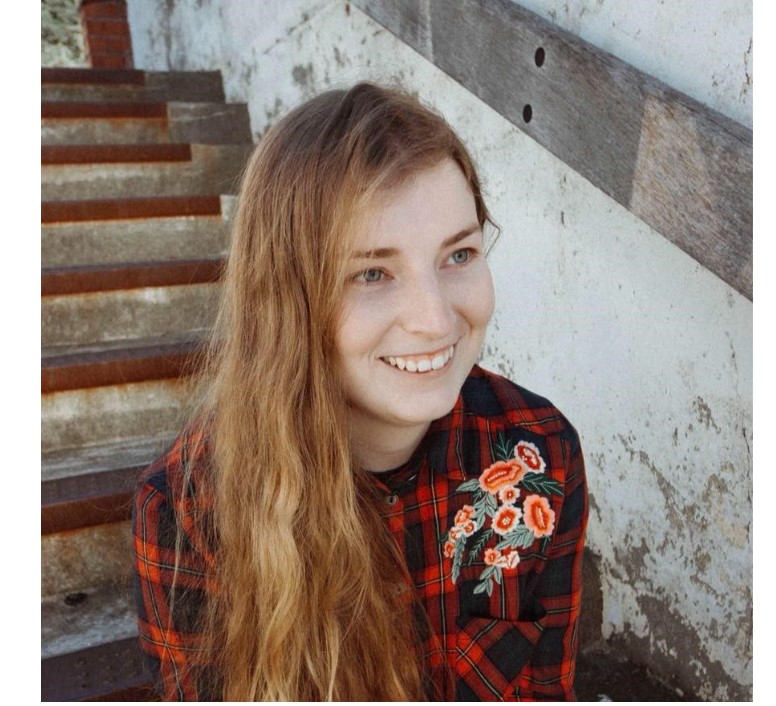
Christchurch-born Rebecca Chrystal spent her PASI 428 internship with Nga Taonga Sound & Vision as a part of their Outreach and Engagement Team, drawing attention to Pacific content within the collections of this national archive of sound, audiovisual, and related materials. Having graduated in 2018 with a Bachelor of Arts double-majoring in Pacific Studies and Film in 2018, Nga Taonga was an ideal placement for her, as it utilised her knowledge of film studies and production while also affording an opportunity to apply her Pacific Studies learning in a public sector organization that is part of the galleries, libraries, archives and museums (GLAM) sector.
Miuti Peteli Poasa, PRAXIS NZ
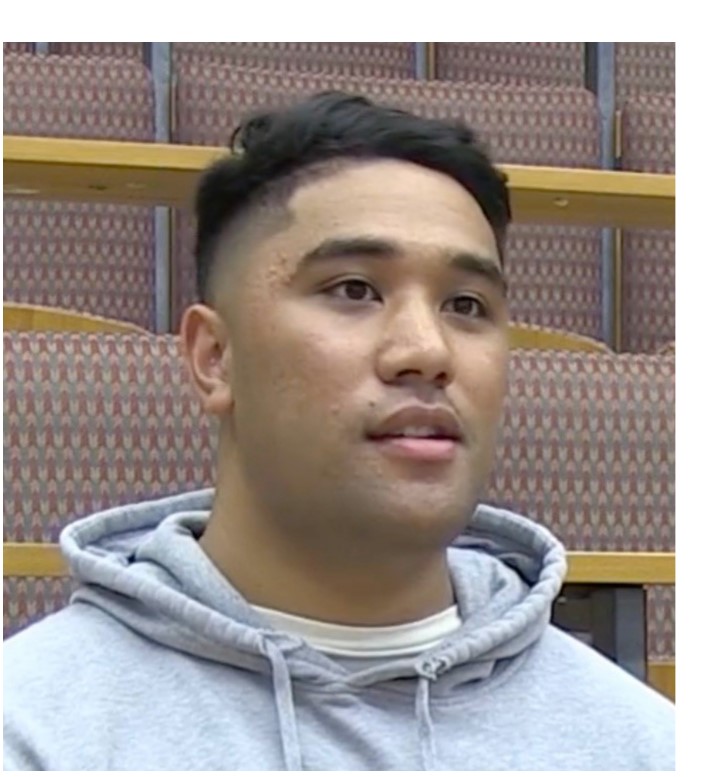
Miuti Peteli Poasa completed a Bachelor of Arts double-majoring in Pacific Studies and Cultural Anthropology in 2018. He is a proud Samoan who was born in Aotearoa New Zealand and raised amongst the hills of Strathmore in the windy city of Wellington. For his PASI 428, he had the privilege of interning with the private training establishment for youth worker education, Praxis NZ. He says of the internship, “I’ve been fortunate to be welcomed by a family-like organisation that values all kinds of learning and perspectives as a means to equip youth workers to better guide and nurture relationships with young people.”What led to this internship being selected for Peteli was his desire to be in a space that practiced alternative approaches to education that are not necessarily at the forefront of mainstream education: “I wanted to challenge or enhance my way of thinking surrounding different types of epistemologies - an idea commonly engaged with in Pacific Studies.”
SLC Research Seminar Series - Dr Charles Rice-Davis
Date: 19 September 2019
Time: 12.10 pm
Venue: vZ606, von Zedlitz Building, Kelburn Parade
Navassa/Nauru: Representing Island States of Exception
Presented by Dr Charles Rice-Davis
Abstract
This seminar considers some of the novel legal technologies (dispositif, apparatus) which have been employed in the contexts of the Caribbean and Pacific islands, including: the US Guano Islands Act of 1856, the Presidential Decision Directive on Alien Smuggling of 1993, and the Australian 'Pacific Solution' in relation to resource extraction (especially phosphate mining), oversea migration, and the looming eventuality of climate refugee movement. In addition to a consideration of circulating legal theories of appropriation/expropriation, visual and literary representations of the consequences of the human and environmental fallout of extraction and confinement will be considered.
Biography
Charles Rice-Davis has translated the first volume of poetry of the Haitian poet Coutechève Lavoie Aupont and the collection, Paris, capitale de la France by Nguyễn-Trong-Hiệp. Since 2015, he has been the English-Language translator for the University of Geneva's BodmerLab digital museography project.
ALL WELCOME |Seminar Convenor – Reader Marco Sonzogni (marco.sonzogni@vuw.ac.nz)
SLC / Va‘aomanū Pasifika Research Seminar Series 2019 - Martyn Reynolds
Date: 18 September 2019
Time: 3.00 pm
Venue: Rm 102, 6 Kelburn Parade (6KP), Kelburn
Honouring Pasifika Edgewalkers as a Model for Pasifika Research Success
Presented by Martyn Reynolds
Abstract
The education of Pasifika young men, students with links to the Pacific in Aotearoa NewZealand, can be framed in many ways. Lenses such as deficit theorisation, ‘closing the gaps’, and making Pasifika learners ‘target’ students, bring their own concepts of success to the field. This presentation reports on aspects of a recently completed strengths-based enquiry into ‘Pasifika success as Pasifika’. In this, the activities of the education system are understood through Critical Race Theory, and the voices of Pasifika students and parents are understood through concepts of Pacific origin. Foremost of these is va/vā, seldom discussed in the context of secondary education. I describe a basket of forms of success together with a discussion of some actions which teachers and schools might consider to catalyse the enhancement of Pasifika-defined success. This, my third VASA presentation, gratefully offers an account of the results of my learning through the VASA series and where it has led a Palagi researcher/teacher on an edgewalking journey with members of one schools’ Pasifika community.
Biography
Martyn Reynolds studiedunder the supervision of Dr Cherie Chu and Dr Mark Sheehan and acknowledges the support of members of Va’aomanū Pasifika over a long period of time. Of English and Welsh decent, and born near London, he has been a secondary school teacher for over thirty years, and has taught in England, PNG, Tonga and Aotearoa, New Zealand. He was an English teacher and the Specialist Classroom Teacher at Wellington College, Wellington, for over 15 years. He is currently a freelance provider of professional leading and development, researcher and writer, and is also a Research Assistant in the Faculty of Education, VUW.
SLC / Va‘aomanū Pasifika Research Seminar Series 2019 - Dr Emalani Case
Date: 12 September 2019
Time: 12.10 pm
Venue: vZ606, von Zedlitz Building, Kelburn Parade
Caught (and brought) in the currents: narratives of convergence, destruction, and creation at Kamilo
Presented by Dr Emalani Case
Abstract
In this seminar, we will visit, interact with, and listen to place. Rather than ascribing narratives and frames to the places we study, it will encourage us to take pause and to sift through the many layers of complex histories, uncovering the stories not being told. As an example, this seminar will focus on Kamilo, a beach located on the Big Island of Hawaiʻi, that has become known (in recent years) as “Plastic Beach.” It will use Kamilo as a means of grappling with issues of accessibility and (in)visibility and the dangers of colonial framings, and will reposition the beach not just as a place of crossing, but one of destruction and creation. Also touching upon larger issues of sustainability, environmental protection, and our impacts in the Anthropocene, this seminar will not only uncover stories but will tell them, circling between personal experience, research, and critical reflection.
Biography
Emalani Case is a lecturer in Pacific Studies at Victoria University of Wellington. As a Hawaiian woman, activist, and writer, she is deeply engaged in issues of indigenous rights, dietary colonialism, political independence, and environmental and social justice. Her current research focuses on Hawaiian articulations of identity and nationalism, sovereignty, and decolonizing indigenous minds and bodies. She is from Waimea, Hawaiʻi.
ALL WELCOME | Seminar Convenor Marco Sonzogni (marco.sonzogni@vuw.ac.nz)
SLC / Va‘aomanū Pasifika Research Seminar Series 2019 - Tupe Lualua
Date: 4 September 2019
Time: 3.00 pm
Venue: Rm 102, 6 Kelburn Parade (6KP), Kelburn
Fatu Na Totō: Planted Seed
Presented by Tupe Lualua
Abstract
In this seminar, Wellington dancer and choreographer, Tupe Lualua, will speak about her work as the 2019 Creative New Zealand Sāmoa Artist in Residence. Her three month residency is offered in partnership with the National University of Sāmoa and with support from the New Zealand High Commission in Apia. It offers a chance for midcareer or established New Zealand artists of Pacific heritage to develop their skills and Practice.
During her residency, Tupe will be exploring the role of the taule'ale’a (untitled man) within the village community. In her current research on the taule’ale’a and the aumaga (the social class of taule’ale’a), she hopes to acknowledge how vital their indigenous knowledge is for the ecology of Samoan culture and society. As part of the residency, Tupe will be spending time with aumaga and taule’ale’a across different villages to create and teach a choreographed work based on their movements and experiences. She hopes to “shine the light on the Taule’ale’a and the importance of the Aumaga in Samoan Society.”
Her late father, Matua I Falemua Tolua Lualua, and late cousin, Pili Tilo Lualua, were the driving inspirations behind her residency project. “I learned a lot about performing Siva Sāmoa from my father and then became amazed at his knowledge of Sāmoan flora and fauna during a visit to Lefaga in 2011. His stories of the plantation were embodied through our everyday interactions with my cousin Pili.”
Biography
A graduate of Whitireia NZ and Victoria University, Tupe Lualua is a practitioner of Pacific dance and theatre. As a dancer, she has toured throughout Europe, Asia, and the United States performing at International Festivals as a student and graduate of Whitireia Performing Arts, where she also taught Siva Samoa on the Bachelor of Applied Arts programme from 2009 to 2019.
Tupe founded the Le Moana dance company in 2012, creating their first work, Fatu Na Totō, for the Wellington Fringe Festival 2013. The premiere season was a sold out success, named ‘pick of the fringe,’ and then remounted at the Tempo New Zealand dance festival which also sold out at Q Theatre in Auckland. 1918 by Le Moana premiered in Wellington in 2015 and then toured to Auckland, Hamilton, Brisbane, Sydney and Melbourne in 2016. The U.S. premiere of 1918 at the San Diego International Fringe Festival in June 2016 saw Le Moana awarded with the critics’ choice and top box office awards. In 2017, Le Moana presented Purple Onion in the Kia Mau festival and Aumaga in the Pacific Dance festival. Since 2014, Le Moana have hosted the annual Measina Festival in Wellington and Porirua.
SLC / Va‘aomanū Pasifika Research Seminar Series 2019 - Toaga Christina Alefosio and April K. Henderson
Date: 7 August 2019
Time: 3.00 pm
Venue: Rm 102, 6 Kelburn Parade (6KP), Kelburn
On Skin and Bone: Samoan Coconut Oil in Indigenous Practice
Presented by Toaga Christina Alefosio and Dr April K. Henderson
Abstract
International promotional material on coconut oil commonly references its centuries of use as a beauty and health aid by Pacific people. However, this gesture towards indigenous Pacific use of coconut oil is rarely accompanied by substantive information. In this seminar, Alefosio and Henderson discuss multiple stages of a project exploring the topical application of coconut oil in three Samoan practices: fofō, or massage by taulāsea and other forms of customary healers; samaga, the anointing with coconut oil of the newly inked pe‘a or malu to mark the completion of these customary tattoos; and liutofaga, the ritual ‘washing’ of the bones of a deceased relative with coconut oil prior to reinterment.
Arising initially from Henderson’s Marsden-funded research on Pacific coconut commodities, this project featured phases as Summer Research Scholarship work by Alefosio, a co-authored contribution to Professor Judith Bennett’s 2017 Valued Coconuts: Hear Our Voices symposium at University of Otago, a 2017 PASI 429 Comparative Research essay by Alefosio, and was finally synthesized as a 2018 co-authored publication in the Journal of Pacific History. Alefosio and Henderson conclude that there are interrelated practical, medicinal, and spiritual dimensions to Samoan uses of coconut oil, and that these are usefully understood through reference to Samoan conceptions of sociospatial relationship, or vā.
Biographies
Toaga Christina Alefosio is studying towards a Master of Intercultural Communication and Applied Translation (MICAT), having completed her BA Honours in Pacific Studies and BA majoring in Pacific Studies, Development Studies and Samoan Studies. She has academic research interests in indigenous practices within Samoan diasporic communities, including tattooing, customary ceremonies, and medical beliefs and practices. She’s served as a Teaching Fellow in Samoan Studies (2018–2019) and a tutor for Pacific Studies (2017–2019). This experience encouraged her to pursue the MICAT focusing on translation in the Samoan Language.
April K. Henderson is Programme Director of Va‘aomanū Pasifika and Senior Lecturer in Pacific Studies. Her recent project, “Kernels of Hope: Following Coconut Commodities from the Pacific to the West,” funded by a Marsden FastStart grant, follows virgin coconut oil (VCO) from Pacific nations to metropolitan consumers, illuminating the beliefs, hopes, and investments in the product at either end of the supply chain. While primarily focused on VCO, the production, uses, and circulation of other forms of Pacific Islands coconut oil are also of interest.
SLC Research Seminar Series - Dr Yoko Yonezawa
Date: 1 August 2019
Time: 12.10 pm
Venue: vZ606, von Zedlitz Building, Kelburn Parade
“Language and Identity in Japanese Political Discourse”
Presented by Dr Yoko Yonezawa
Abstract
This study explores the ways in which speaker identity emerges in contexts of interaction in Japanese political discourse, with a particular focus on how it is constructed through language forms and structures. This is a joint project with Dr Nerida Jarkey of the University of Sydney. In this seminar, I present our analysis of two prominent but very different politicians’ speech: the current Prime Minister Abe Shinzo and the former prime minister Noda Yoshihiko.
In an article in the weekly magazine AERA, a sociolinguist comments ‘Prime Minister Abe likes to express directly, through his words, that he is strong, grand, and confident. He knows very well that he has enormous power, and if he demonstrates that power his opponents will yield to him’ (AERA 2018, p. 31). When challenged by a former leader of the opposition on the veracity of a certain claim, for example, Abe responded, ‘… it is absolutely correct. Because I am the Prime Minister.’ (AERA 2018, p. 31).
On the other hand, the Guardian (2011) captured the essence of Noda’s self-presentation with the caption ‘Yoshiko Noda: knows how to do modesty’. In his bid for the party leadership, playing on the words of a favourite poet, Noda had ‘done’ modesty in a highly explicit way, characterising himself not as ‘a goldfish in a scarlet robe’ but rather as ‘a loach in muddy water’.
But what about the less overt aspects of their speech style, such as the language forms and structures they use? What role do these play in aspects of their identity construction?
This study analyses data from the Minutes of the National Diet Committee Meetings, both quantitatively and qualitatively, and compares Abe and Noda’s speech as well as comparing their language forms with those of another politician: a prominent female contemporary, Yuriko Koike. The study shows that both Abe and Noda selectively draw on the resources characteristic of Japanese ‘parliamentary language style’ in the linguistic construction of their own identity but in very different ways.
References
The Guardian. 2011. Pass notes No 3,036: Yoshihiko Noda. 31/08/2011. Online at https://www.theguardian.com/world/2011/aug/30/pass-notes-yoshihiko-noda; last accessed 11 October 2018.
Sakuta, Hiroshi. 2018. Tsuyoi kotoba ga iron o fuujita [Strong words suppressed objection]. AERA Vol. 2018/9/10, 29-31. Tokyo: Asahi Shimbun.
Biography
Dr Yoko Yonezawa is a lecturer in Japanese at the School of Languages and Cultures.
ALL WELCOME | Seminar Convenor Reader Marco Sonzogni (marco.sonzogni@vuw.ac.nz)
SLC / Va‘aomanū Pasifika Research Seminar Series 2019 - Melanie Puka
Date: 24 July 2019
Time: 3.00 pm
Venue: Rm 102, 6 Kelburn Parade (6KP), Kelburn
“Oceanic kinships in film practice”
Presented by Melanie Puka
Abstract
The contemporary production and circulation of film offers the possibility to share diverse stories and to reach out across multiple horizons, generating diverse connections and conversations. A range of organisations and kinships are currently emerging to support film-making, capacity-building and the sharing of stories through film across Oceania. The film projects coming out of such kinships and organisations have various kaupapa but share connections which can be seen as part of the global indigenous agenda to decolonise spaces, including film.
Melanie's masters research applies an intersectional framework grounded in Pacific Studies and Postdevelopment theory to examine film and film-making processes and their contributions to social and cultural outcomes in Oceania. In this seminar she will discuss a range of film projects and spaces, including Vai (2019), Through Our Lens, the Māoriland Film Festival, Pacific Connections and how their practices reflect the regional imaginary as articulated by Hau’ofa (2008) and Wendt (1976). Melanie will also discuss how collaboration in film practice endeavours to address inequalities in voice and representation of Oceanian peoples in film and how such efforts contribute to expansive understandings of development in Oceania.
Biography
Melanie Puka is of Tokelauan and Samoan descent. She has recently completed her Master of Development Studies at Victoria University of Wellington, New Zealand. She received a conjoint Bachelor of Laws and Arts majoring in Development Studies in 2017. She will be pursuing a PhD in Geography at Louisiana State University beginning in August 2019 focusing on Tokelauan diaspora and the politics of cultural identity within Tokelauan communities.
SLC / Va‘aomanū Pasifika Research Seminar Series 2019 - Jess Marinaccio
Date: 10 July 2019
Time: 3.00 pm
Venue: Rm 102, 6 Kelburn Parade (6KP), Kelburn
"After it is broken/the whole is still there”: Trans-Local Histories of Tuvalu and Taiwan’s Pacific Diplomacies
Presented by Jess Marinaccio
Abstract
In August, I will be submitting my PhD thesis, “ ‘[They] danced, and, then, … it was our turn to dance’: Performative Cultural Diplomacy Between Tuvalu and Taiwan.” This thesis explores conceptions of diplomacy and discursive histories in Tuvalu-Taiwan relations and the cultural diplomacy projects that have both reinforced and undermined this relationship. In this seminar, I briefly reflect on the outcomes of my PhD research before more comprehensively discussing a proposed post-doctoral project. In this project, I use trans-local Pacific histories and theories of relationship-building as conceptual frameworks to investigate two distinct ways Tuvalu and Taiwan have become embedded in the Pacific region.
For Taiwan, I examine how the development of Exclusive Economic Zones and a long history of illegal fishing have locked Taiwan in contentious relationships with numerous Pacific locales (including Tuvalu). These conflicts feature narratives of Taiwan’s multi-sited Pacific histories (and the multiple actors they have involved) that are missing from current academic discourse.For Tuvalu, I contemplate Festival of Pacific Arts (FESTPAC), a major event held every four years in different Pacific locales, as a mobile site of trans-local history-making. At FESTPAC, Tuvalu has continuously situated and re-situated itself in relationships with other Pacific places (including Taiwan) since before its independence from the United Kingdom in 1978. Although disparate, both of these topics on trans-local Pacific histories and relationship-building are founded on the strongest and most valuable findings from my PhD. As I will argue, this warrants their further consideration in more extensive research projects.
Biography
Jess Marinaccio is a PhD Candidate in Pacific Studies at Victoria University of Wellington, New Zealand. She received a Master’s in Chinese literature from National Taiwan University and, later, worked as a Mandarin-English interpreter for the Tuvalu Embassy in Taiwan. Jess’s research focuses on Tuvalu-Taiwan cultural diplomacy, as well as understandings of diplomacy and indigeneity in Taiwan and its Pacific allies. She has published/will be publishing relevant articles and book chapters in Issues & Studies, Asia Pacific Viewpoint, ANU In Brief, International Journal of Taiwan Studies, The Contemporary Pacific, and The China Alternative – Changing Regional Order in the Pacific Islands (Acton: ANU Press, 2019).
SLC Research Seminar Series 2019 - Dr Luo Hui
Date: 27 June 2019
Time: 12.10 pm
Venue: vZ606, von Zedlitz Building, Kelburn Parade
“Other People’s Ancestors: Translaboration and Intercultural (Be)longing in Renee Liang’s The Bone Feeder”
Dr Luo Hui (Chinese)
Abstract
In 1902 the S.S. Ventnor, an English steamer chartered to take 499 Chinese bodies from New Zealand back to their ancestral home, sank off the coast of Hokianga. The coffins were washed ashore and taken in by two local iwis. This tragic event remained buried in New Zealand history until a century later, when Kiwi-Chinese began to recover and retell the story. The story triggered a decade-long journey for Kiwi-Chinese poet Renee Liang, who wrote The Bone Feeder in 2007, a play that went through several versions and was subsequently adapted into an opera in 2017.
In this presentation, I approach The Bone Feeder as a Chinese ghost tale in contemporary New Zealand setting. The Chinese ghost tale tradition could be understood as an attempt, on the part of the literati elite, to accommodate and come to terms with ghosts, or what Arthur Wolf aptly called, ‘other people’s ancestors’. I adopt the term ‘translaboration’ to describe a similar process of cultural accommodation in The Bone Feeder, whereby the ghosts are cared for and a sense of intercultural belonging may be first imagined and then achieved. By examining the roles of Chinese, Maori and Pakeha agents in this translaboration, I seek to uncover aspects of intercultural relations, and possibilities, that are not often addressed in current discourses of biculturalism and multiculturalism.
Bio
Luo Hui is a Senior Lecturer in Chinese in the School of Languages & Cultures.
ALL WELCOME Seminar Convenor Reader Marco Sonzogni (marco.sonzongi@vuw.ac.nz)
Te Kawa a Māui / Va‘aomanū Pasifika Seminar - Associate Professor Hōkūlani K. Aikau and Assistant Professor Maile Arvin
Date: 21 June 2019
Time: 12.00 pm
Venue: Ahumairangi Room 101, Te Kawa a Māui, 48 Kelburn Parade
Curating a Decolonial Guide to Hawai'i
Presented by Associate Professor Hōkūlani K. Aikau
Abstract
Archipelagic sensibilities and knowledge provide the foundation for the Detours project, an edited collection that subverts the guidebook authorship and authority about the islands of Hawai‘i. It braids the political history of the islands with the intellectual genealogies of postcolonial feminists writing about islands with art, poetry, and essays. The presentation will outline the ethical dimensions of the project and the process of turning away from the guidebook genre toward a book that guides readers to decolonization—a template and archive of place-based work and representations aimed at achieving ea (life, breath, sovereignty). Finally, the presentation also reflects on the kinds of responsibilities that island knowledges place on people who visit or live upon them, offering a relationship of reciprocity in place of extraction.
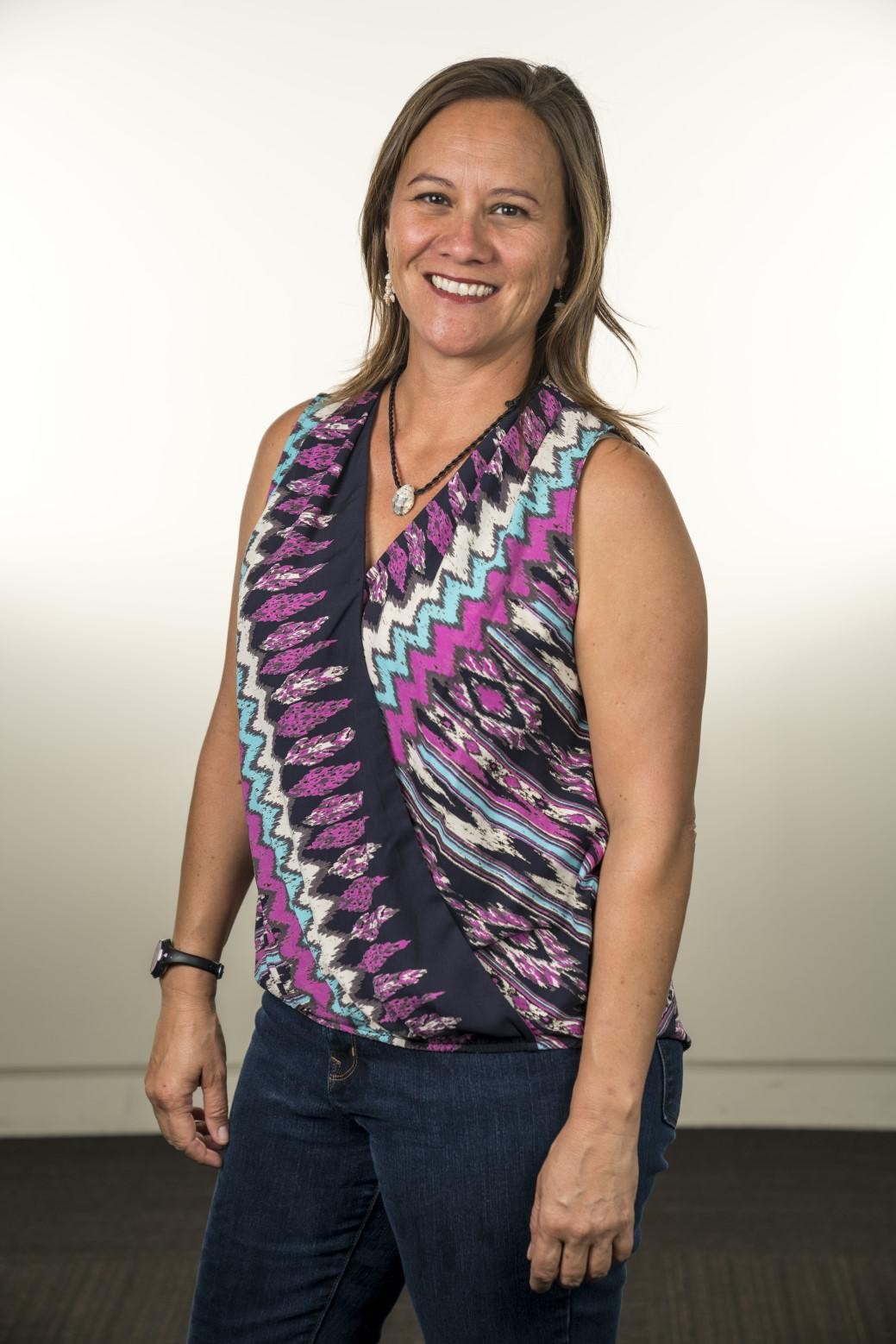
About the Speaker
Hōkūlani K. Aikau (Kanaka ‘Ōiwi) is an associate professor in Gender Studies and Ethnic Studies at the University of Utah. Dr. Aikau is the author of A Chosen People, A Promised Land: Mormonism and Race in Hawaiʻi (University of Minnesota Press, 2012) and Detours: A Decolonial Guide to Hawaiʻi, co-edited with Dr. Vernadette Gonzalez (Duke University Press, 2019). Her next ethnographic project, Hoaʻāina: Returning People and Practices to Heʻeia, funded in part by UH Sea Grant, is in collaboration with Kākoʻo ʻŌiwi, a Native Hawaiian non-profit working to restore wetland taro farming on the windward coast of Oʻahu.
Possessing Polynesians: The Science of Settler Colonial Whiteness in Hawai'i and Oceania
Presented by Assistant Professor Maile Arvin
Abstract
What is a Polynesian? In the nineteenth and early twentieth centuries, Western social scientists repeatedly asked this question, and answered it by declaring that Polynesians were an almost white race. This talk analyzes this history and the function of scientific classifications of Polynesians as almost white within the context of settler colonialism in Polynesia, especially in Hawaiʻi, arguing that a logic of possession through whiteness animates settler colonialism. In this logic, both Polynesia (the place) and Polynesians (the people) become exotic, feminized possessions of whiteness. As possessions, Polynesians are not extended the privileges of whiteness. Rather, this logic allows white settlers to claim that whiteness has an original claim to Polynesian lands and resources. In other words, according to this discourse, whiteness is Indigenous to Polynesia. Native Hawaiians and other Polynesians have long co-opted, contested, and refused such logic in ways that regenerate Indigenous forms of recognition.
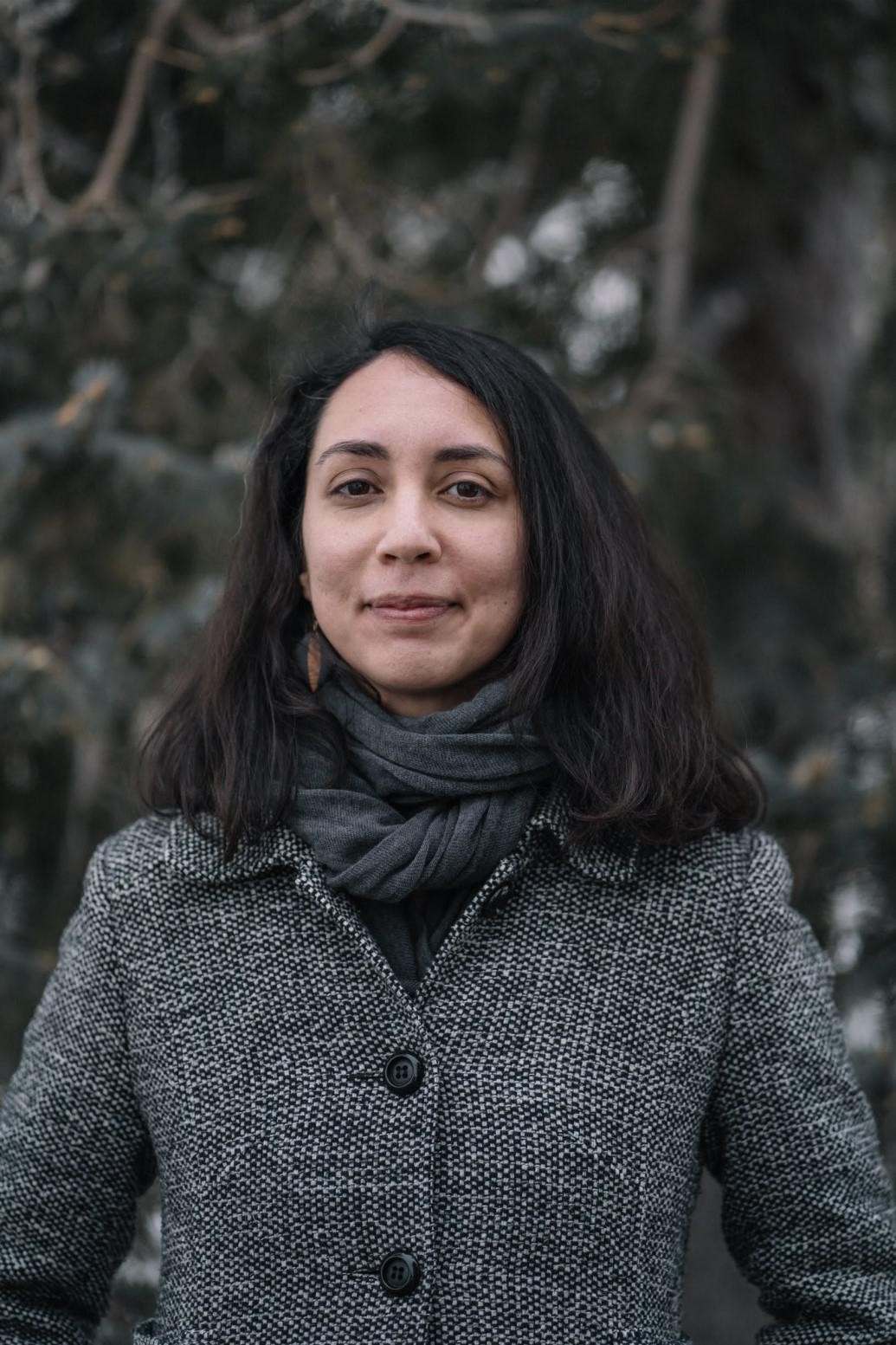
About the Speaker
Maile Arvin (Kanaka ‘Ōiwi) is an assistant professor of History and Gender Studies at the University of Utah. She is a Native Hawaiian feminist scholar who works on issues of race, gender, science and colonialism in Hawai‘i and the broader Pacific. Her first book, Possessing Polynesians: The Science of Settler Colonial Whiteness in Hawai‘i and Oceania, is forthcoming with Duke University Press in Fall 2019.
SLC / Va‘aomanū Pasifika Research Seminar Series 2019 - Dr Miranda Johnson
Date: 29 May 2019
Time: 3.00 pm
Venue: Rm 102, 6 Kelburn Parade (6KP)
The Modernizers: Australasian Empire and the Mandate of Progress in the South Pacific
Presented by Dr. Miranda Johnson
Abstract
In this talk, I will outline a new project, still in its early stages, in which I examine modernizing reforms and their agents in the early-to-mid twentieth century settler colonial and imperial South Pacific. During this period, roughly from the end of World War I to the opening of the era of decolonization and self-determination of the 1960s, Indigenous and colonized peoples faced new as well as ongoing challenges to their sovereignty and identity, from continuing dispossession in areas of dense white settlement, exploitation of labour in expanding plantation colonialism, deeper penetration of global markets, and assimilation efforts directed by missionaries and, increasingly, by national governments.
Indigenous and Pacific leaders, lawyers, businessmen, anthropologists and others debated ideas and sought to reform colonial policy for the “progress” or otherwise of “native” populations. Labour organisers and activists sought progress in other terms, often by joining up struggles across colonized and racialized territories. My focus in this talk will be primarily on my method, approach, and sources in relation to recent historical and interdisciplinary scholarship.
Biography
Dr. Miranda Johnson is a senior lecturer in the Department of History at The University of Sydney. A historian of the modern Pacific world, focusing on colonial, Indigenous, and cross-cultural histories, she is the author of the prize-winning book The Land Is Our History: Indigeneity, Law, and the Settler State (Oxford University Press, 2016) and co-editor with Warwick Anderson and Barbara Brookes of Pacific Futures: Past and Present (University of Hawai‘i Press, 2018).
SLC / Classics Research Seminar Series 2019 - Prof Jeff Tatum
Date: 29 May 2019
Time: 12.00 pm
Venue: OK526 (Classics Museum), Old Kirk Building, Kelburn Parade
A Great and Arduous Struggle: Mark Antony and The Rhetoric of Libertas in 44-43BC
Presented by Prof Jeff Tatum
Abstract
The struggle among Antony, Octavian, Cicero, and the Liberators in 44 and 43 centered round sacred traditions of liberating the city. The Liberators took the view that slaying Caesar was a sacred duty - as a tyrant he was sacer - while their opponents insisted the assassination of Caesar, Rome's first Liberator, rendered his killers sacri. Libertas was the issue, and Antony, before the battle of Mutina, made the case that his opposition to the Liberators - and to Cicero and Octavian - perpetuated the struggle for freedom initiated by Caesar in his war against Pompey.
To get the most from this seminar, you may want to (re)read in English or Latin Cicero's Thirteenth Philippic
Biography
Jeff Tatum is Professor of Classics at the Victoria University of Wellington. He is currently writing a biography of Mark Antony for Oxford University Press.
SLC Research Seminar Series 2019 - Dr Limin Bai
Date: 23 May 2019
Time: 4.10 pm
Venue: vZ606, von Zedlitz Building, Kelburn Parade
"Making Learning Enjoyable: Picture Character-Cards as 'Educational Play Items' in Early Twentieth-Century China"
Presented by Dr Limin Bai
Abstract
By the end of the nineteenth century, the introduction of modern educational theories into China from the West and Japan brought an ever-closer link between education and play. Education reformers and toy manufacturers began to promote educational toys considered “beneficial to the development of children’s intellect” (yizhi 益智) by enabling children to learn while playing. It is against this historical context that this paper examines why, in 1908, Shanghai Commercial Press advertised picture character-cards as “educational play items.” It provides insights into the changes in the education of children in early twentieth-century China, arguing that the flashcards produced at that time marked a turning point in Chinese pedagogy and the concept of the young child.
Bio
Dr. Limin Bai is Senior Lecturer in Chinese Studies, Victoria University of Wellington. She has published extensively on Chinese history, society and education in both English and Chinese.
ALL WELCOME Seminar Convenor Reader Marco Sonzogni (marco.sonzongi@vuw.ac.nz)
Oceanic Imaginaries in Art(s) and Minds
Date: 1 May 2019
Time: 3.00 pm
Venue: 6 Kelburn Parade, room 102
Va'aomanū Pasifika Seminar Series 2019
Graduate students of Va’aomanū Pasifika, Hanahiva Rose and Jordan Fox, speak about Pacific art and regional identities in our next seminar Oceanic Imaginaries in Art(s) and Minds
In this seminar Art History and Pacific Studies graduate Hanahiva Rose will criss-cross around Aotearoa, Oceania, and the globe, examining how Pacific art operates in a number of environments. Anchored by Margaret Jolly’s theory of the moving object, she will question the aesthetics and cultural politics of Pacific art as it moves in the physical sense, across land and ocean, within and beyond the Pacific region; in the affective sense, eliciting emotional response from its audience; and in the contextual sense, as the curatorial frame of its display changes. Reflecting on her own involvement in a number of projects, Hana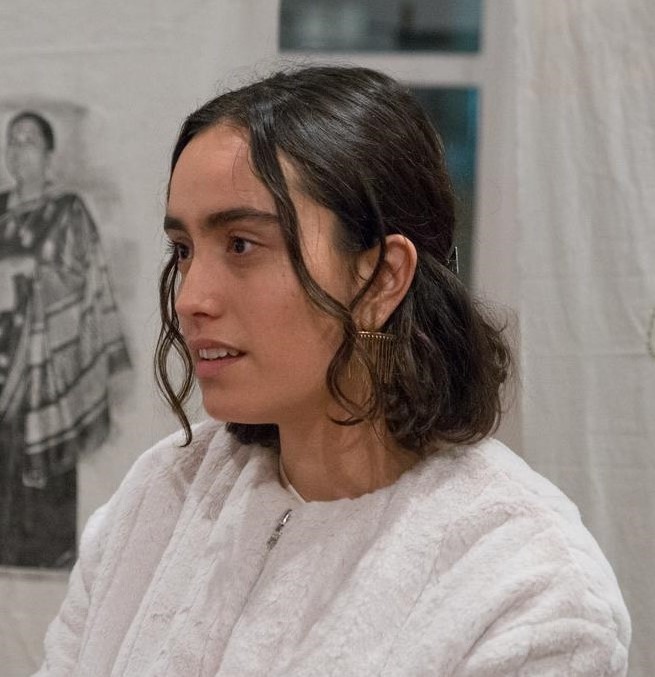 hiva will move between moments and places in an attempt to convey some of the fraught and contested, celebratory and triumphant stories that she perceives as crucial to understanding Pacific art history.
hiva will move between moments and places in an attempt to convey some of the fraught and contested, celebratory and triumphant stories that she perceives as crucial to understanding Pacific art history.
Hanahiva comes from the islands of Ra’iātea and Huahine and the people of Te Atiawa, Ngāi Tahu and Ngāti Toa Rangatira. She graduated with a BA(Hons) in Art History in 2019. She has held a number of research positions including on Oceania, which opened at the Royal Academy of Arts, London, in 2018; and Te Papa, where she worked on creating a history of Pacific art exhibitions in Aotearoa. Hanahiva lives in Wellington, where she works as an adviser for the Ministry for Culture & Heritage. She is an extensively published arts writer and continues to take on writing projects in her free time.
Jordan’s seminar presentation follows his journey through Pacific Studies and in particular, his Honours research project. The aim of his project seeks to identify and understand various Māori articulations of a Pacific regional identity—are Māori Pacific Islanders? His project proposes to interview two Māori groups/communities to identify their responses, connections and disconnections, to Pacific identity, and analyse the various circumstances which contribute to these responses. Some of the topics that will be covered include regional identity, indigeneity, the theory of articulation, Māori and Pacific connections and disconnections. It is the aim of his project to further shine light on work already undertaken by various intellectuals such as Alice Te 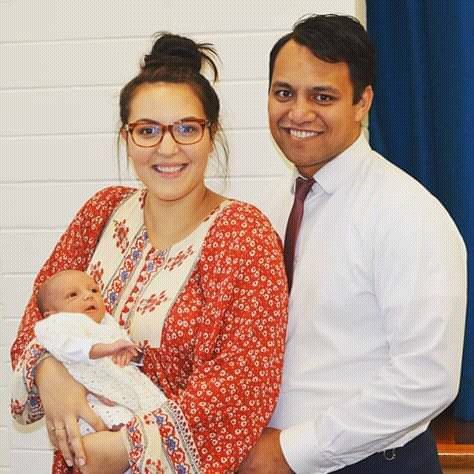 Punga Somerville, Teresia Teaiwa, and others who have discussed the relationship between Māori and Pasifika in and beyond Aotearoa.
Punga Somerville, Teresia Teaiwa, and others who have discussed the relationship between Māori and Pasifika in and beyond Aotearoa.
Jordan Fox hails from the Wairarapa. Raised in Masterton, Jordan’s iwi are Ngāti Kahungunu and Ngāti Porou. He is completing a Bachelor of Arts with Honours in Pacific Studies at Victoria University of Wellington. He and his wife live in Masterton where they raise their two-year old daughter.
SLC / Va‘aomanū Pasifika Research Seminar Series 2019 - Josh Connolly
Date: 3 April 2019
Time: 3.00 pm
Venue: 6 Kelburn Parade (6KP), Rm 102
Tā’aloga and Sport: The Same but Different
Presented by Josh Connolly
Abstract
‘Sport’ can be a loaded term, it comes with a lot of baggage that isn’t immediately obvious to the casual observer. In New Zealand where sport, and rugby in particular, is considered by many to be sacrosanct this is especially true. It is easy to be unaware of the fact that what we refer to as sport in a modern context is the product of a particular cultural paradigm. Something I had not considered until it was spelled out to me by one of my participants, was how inherently Eurocentric my own understanding of sport was. ‘Sport’ is commonly translated as being the equivalent of the Samoan word tā’aloga.
However there is much that can be lost when translating between languages. This is certainly the case in the context of tā’aloga and sport. While these terms are the closest approximations of one another in their respective languages this belies the fact that each word and concept originates from its own cultural context carrying their own specific connotations and understandings. By interrogating the category of sport as a social construct and engaging a deeper understanding of tā’aloga it becomes possible to trace the overlap and the interplay of these traditions. The history of sport and tā’aloga is not simply that of two different practices but also one that traces constantly shifting dynamics of power and resistance. This is true both historically and within the contemporary experiences of Samoan-New Zealanders.
Biography
Josh is a Palagi student who recently submitted his MA thesis titled '‘It’s part of who I am’: Tā’aloga ma fa’asinomaga ma fa’asāmoa - Sport, identity, and culture in the lives of Samoan-New Zealanders.' In 2016 he completed his BA with honours in Cultural Anthropology part of which involved undertaking a policy research internship with the Association of Social Anthropologists of Aotearoa/New Zealand (ASAA/NZ).
SLC Research Seminar Series - Dr Dennitza Gabrakova
Date: 28 March 2019
Time: 12.10 pm
Venue: vZ606, von Zedlitz Building, Kelburn Parade
“The Flotsam of History”
Presented by Dr Dennitza Gabrakova
Abstract
This talk reflects on material from the book "The Unnamable Archipelago" (Brill, 2018) through the methods of collage, collection and "fabrication." I am proposing a virtual exhibition based on arrangements of objects in a selection of Japanese postwar/contemporary island-fiction. I am framing this curatorial concept in ideas developed in the early work of graphic designer Toda Tsutomu and mixed-media practices of Turkish novelist Orhan Pamuk. In this way, I aim to orchestrate a resonance between the trope of the island in the novels and the visual rhetoric of cross-cultural communication.
Biography
Dennitza Gabrakova is Senior Lecturer in Japanese with interests in the history of cultural representations as well as urban/post-urban/meta-urban space.
ALL WELCOME
Seminar Convener Reader Marco Sonzogni (marco.sonzogni@vuw.ac.nz)
SLC / Va‘aomanū Pasifika Research Seminar Series 2019
Date: 20 March 2019
Time: 3.00 pm
Venue: 6 Kelburn Parade (6KP), Rm 102.
Nature of the (Alter)native: Consuming Indigeneity
Presented by Nate Rigler
Abstract
Over the past two decades there has been a renewed interest in coconut oil consumption in Western countries. This presents an opportunity for Pacific Studies research, as Pacific Islands and Islanders are implicated in marketing material. Literature gestures to purported native Pacific Islanders’ wellbeing as evidence of the health benefits of coconut oil. However, there is no research that compares Pacific Islander and Western consumers’ uses of coconut oil. Adding complexity to this topic are past and ongoing migrations of Pacific Islanders to metropolitan Pacific Rim nations. These migrations, many scholars believe, have expanded the cultural realm of Oceania and rearticulated Pacific identity.
This project is interested in the meanings made of coconut oil by consumers in the San Francisco Bay Area and the Wellington Region. It focuses on possible links between consumption of coconut oil and consumers’ understandings of ‘native’ or ‘indigenous’ Pacific places, peoples, and practices. This project will offer nuanced findings regarding how both Western and diasporic Pacific peoples may link their understandings of indigeneity —whether the indigenous ‘other’ or the indigenous ‘self’— to practices of consumption. This work will contribute to understandings of commodity fetishism, articulations of indigeneity, and cultural maintenance in diaspora.
Biography
Nate Rigler is a PhD candidate in Pacific Studies. Nate was born and raised in the San Francisco Bay Area in California and is a second generation diasporic Chamorro Pacific Islander. Nate holds a Bachelor of Arts degree from the University of California, Berkeley with a major in Anthropology and minor in Forestry and Natural Resources. He now lives and conducts research in Wellington, New Zealand and the San Francisco Bay Area, California. He aims to submit his dissertation in December, 2020.
Please join us! All are welcome!
SLC / Va‘aomanū Pasifika Research Seminar Series 2019
Date: 6 March 2019
Time: 3.00 pm
Venue: 6 Kelburn Parade (6KP), Rm 102.
Te ‘akapapa nei tātou: Discursive genealogies and (re)mapping the ‘Cook Islands Universe’.
Presented by Emma Powell
Abstract
In this seminar, I present key questions and objectives for my doctoral thesis, currently titled “Te ‘akapapa nei tātou: Discursive genealogies and (re)mapping the ‘Cook Islands Universe’”. The project discusses and engages ‘akapapa’anga – the Cook Islands Māori (Māori) practice of genealogy making - as an epistemological tool in critical conversations about the Cook Islands and its people.
Unfortunately, ‘akapapa’anga has received little attention, resulting in the Cook Islands and its people being increasingly framed as culturally homogenous, despite comprising 15 islands that were largely distinct societies prior to the creation of the nation. The majority of Māori now also live outside the home islands. This is framed in political and academic discourse as a worrying displacement of peoples, implying that a thriving Cook Islands nation is premised on the synonymity of national boundaries and people.
In the project, I propose the utility of ‘akapapa’anga in describing Māori society as a network of genealogical legacies rather than a nationalist ensemble of historic societies. I examine the practice of ‘akapapa’anga during the Cook Islands constitution celebration, Te Maeva Nui, anticipating that as Māori commemorate and reflect on national identity and cultural tradition during the festival, they necessarily animate ever emergent genealogical legacies.
Biography
Emma Powell is a PhD student in the Pacific Studies programme, Va‘aomanū Pasifika. She holds Bachelors degrees in Public Policy (BCA) and English Literature (BA Hons 1st) from Victoria University of Wellington and completed a Master of Arts degree in English Literature (MA 1st) from the University of Auckland. Emma’s doctoral thesis focuses on the epistemological foundations of ‘akapapa’anga – the Māori practice of genealogy making – and its utility in critical conversations about Māori historiography, culture and geography. Emma is Cook Islands Māori with genealogical affiliations to the island of Atiu and the far southern island of Mangaia.
Please join us! All are welcome!
FHSS Learning and Teaching Seminar Series: Nicola Gilmour
Date: 6 October 2014
Time: 12.15 pm
Venue: Murphy LT220
Dr Nicola Gilmour, Spanish Programme, SLC, will present a seminar on "How and why I use my imaginary friends in my teaching".FHSS Learning and Teaching Seminar Series: Stephen Epstein
Date: 19 May 2014
Time: 12.15 pm
Venue: HU LT220
Associate Professor Stephen Epstein, Asian Studies Programme, will present a seminar on "How and why I use You Tube and Facebook in Teaching".Workshops
Reimagining In Flanders Fields
Date: 8–17 April 2015
Time: 11.30 am
Venue: RB007 and RB006

"Reimagining In Flanders Fields" is a set of creative translation workshops for Victoria students, focusing on John McCrae’s poem In Flanders Fields, led by postgraduate students and staff from the School of Languages and Cultures.
Workshops will run from 11:30am to 12:30pm on the 8th, 9th, 10th, 13th, 14th, 16th, and 17th of April in Rankine Brown 006 and 007. They are run on a drop-in basis and participants do not need to book in advance.
"Reimagining In Flanders Fields" will be followed by "The World's Longest Zine-fest."
This event is part of the Entrenchments 2015 project.
